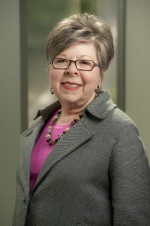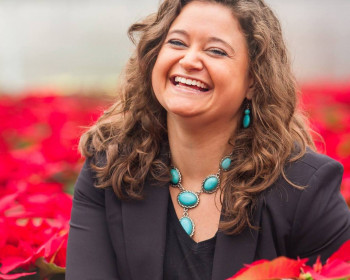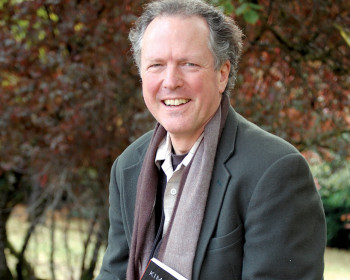Professor recognized as an “ally” of Latino educators
Open gallery

Carolyn S. Carr, chair and professor in the department of Educational Leadership, has been recognized for her work as an ally of Latino school administrators in Oregon. Dr. Carr was praised for being a “servant leader,” whose passion and work towards a more socially just educational system for historically marginalized populations “has influenced others to take action.”
Carr is the third person associated with Lewis & Clark’s Educational Leadership programs to earn the award. In 2009, Rob Larsen (Ed.D. ’08) and Tom Ruhl (BS ’86, founder of the doctoral program in educational leadership), were both recognized. The Oregon Association of Latino Administrators awarded Dr. Carr the OALA Ally award at their winter conference in January 2012.
Dr. Carr’s scholarship centers around fostering equity and social justice through school leadership. Oregon is the only state in the U.S. that requires school principals and superintendents prove competency in equity before they are allowed to be licensed. In addition to running Lewis & Clark’s doctoral program, she is director of research for the Oregon Professors of Educational Administration and has led several statewide studies for focused equity standards in Oregon schools.
Why is being recognized as an “ally” of Latino administrators meaningful to you?
The focus of my professional career as a scholar-practitioner has been preparing educators to be leaders for equity on behalf of all our students. This recognition by Oregon’s leading Latino educators as their “ally” in this struggle for equity is both enormously humbling and deeply gratifying.
What does it mean to be an “ally”?
To me, being an “ally” means demonstrating culturally responsive care for every person I encounter through nurturing and celebration; manifesting equitable decision making and action in personal, community, and political life work; and having the integrity and courage to continue this journey even in the face of opposition.
What are the biggest challenges facing Latino administrators in Oregon? What about Latino students?
The challenges facing Latino educators and students lie within the cultural hegemony that faces them through both overt and purposeful discrimination and perhaps “well intentioned” but nevertheless inequitable practices we allow to continue unchallenged in our communities and institutions.
The conference theme for OALA this year was “Equity in Education: Fact or Fiction?” Which do you think it is? Why?
Daily I see bias and prejudice directed at Latinos and persons from other non-dominant groups. At the same time I see persons from these groups held by others in high esteem, honored, and encouraged to perform at high levels. After 40 years as an educator dedicated to a social justice orientation, I am convinced we as a society are making progress; more people every day begin to serve as allies. However, I believe we still have “miles to go before [we] sleep.” Holding ourselves and others accountable for this culturally responsible and caring work is difficult, but not doing so should no longer be acceptable.
Graduate Communications is located in room 205 of Rogers Hall on the Graduate Campus.
voice 503-768-6054
fax 503-768-6053
Graduate Communications
Lewis & Clark
615 S. Palatine Hill Road
Portland OR 97219

